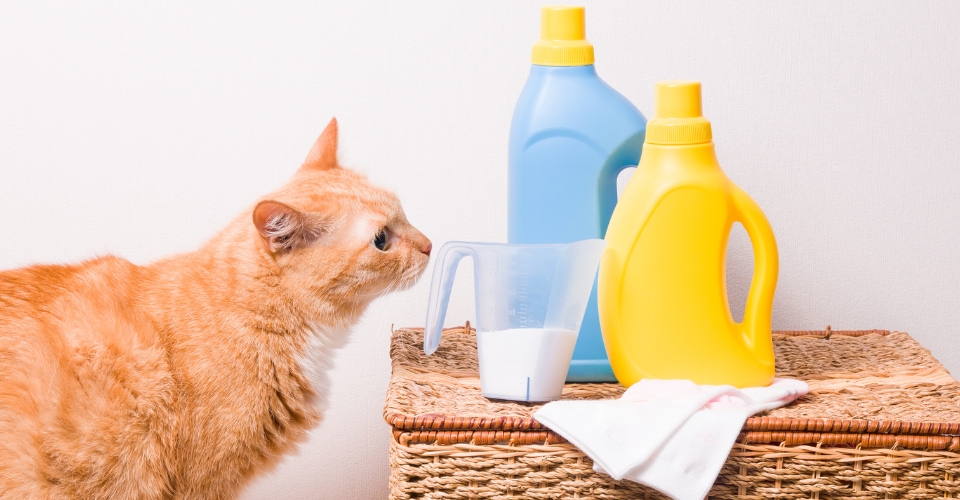Most cat breeds are cuddly and affectionate by nature and can easily get along well with people from all age groups and even with strangers. But some cats may not instantly gel with someone she hasn’t seen before and can even show signs of anxiety, such as hissing or fear around them.
“My cat is afraid of strangers—what should I do? What can make my feline feel relaxed around my new friends or the family I am going to see after a long time.”
This is a common concern among feline parents who have never seen their loving cat act anxious and afraid around new people. To see your cuddly and playful cat act terrified or nervous all of a sudden can be heartbreaking and stressful, to say the least.
Thus, what are the major reasons behind a cat feeling skittish and fearful when surrounded by strangers? Every parent of a fearful cat may be interested in knowing what I can do if my cat is afraid of strangers? What are the ways I can ease her anxiety?
In this article, we will be taking a closer look at the reasons that make a cat anxious and will also find ways to help her feel comfortable and get used to meeting new people.
So, let’s dig in deeper and explore ways to make your feline happy and friendly so that unexpected encounters with a stranger or a new family member run smooth and stress-free. If you want a brief yet satisfactory answer, scroll down. You can also read more in the book “The Cat Bible: Everything Your Cat Expects You to Know.”

|
|
It is a comprehensive book that dwells upon many unknown facts about every facet of caring for a cat, ranging from proper nutrition and strange behavior to medical care and multi-cat households to grooming and geriatrics.
My Cat is Afraid of Strangers—Why Does This Happen?
As mentioned earlier, some unexpected scenarios with unfamiliar people can make your feline fellow turn into a fearful and nervous cat around them. But what other things make them act this way? Why is your otherwise friendly cat acting weird all of a sudden?
Reasons That Make a Cat Anxious When Meeting New People
Below, we have listed down some of the common reasons that can make a cat feel terrified when meeting new people. Let’s take a closer look to better understand your cat’s behavior.
1. Absence of Early Socialization
Your kitten’s behavior is greatly affected by the behavior of her parents. If a parent, especially the father of your feline fellow, was afraid of new people, it is highly likely for the offspring to be fearful of new people as well.
To manage this behavior, it is important to socialize your cat from an early age and also expose her to different stimuli such as noise, car rides, children, and new people. This will help her become comfortable and friendly from a young age. The perfect age to socialize your cat is between the age of 3 to 7 weeks. However, she should be gradually introduced to new stimuli, and the process shouldn’t be rushed. It is also important to mention here that early socialization and fear prevention in kittens is essential for their emotional wellbeing.
2. Personality and Temperament
Some cats are born with timid personalities and don’t socialize with people other than their owners. Thus, when these cats come across unfamiliar people, they become nervous and try to hide away. So, some cats are naturally shy and don’t like to be in your lap or be very close to other people. It is important to understand your furry feline’s personality and temperament so you don’t expose her to stimuli that can make her nervous.
3. Traumatizing Past
Another common reason for cats to act anxious with new people can be a trauma in their past. Not all people are nice to pets, and some unfortunate pet animals are being abused and harmed, making them fearful and skittish around unfamiliar people.
Just as mentioned earlier, you should slowly expose your cat to external stimuli so they can take their time and get comfortable with a new person. You can also ask the new person to offer some treats to your feline, so she knows she is surrounded by people with good intentions, and nobody is going to harm her.

4. Stressful Environment
Changes to your pets’ environment can also greatly affect their behavior. If you have recently moved to a new place or there is an addition of a new member or another pet in your home, it can stress your pet. They will eventually act anxious and hostile towards strangers until they become comfortable with the new change in their environment.
To help your feline feel calm in a new place, you need to give her some time and wait patiently. They need to sniff and explore their new surroundings to ensure a space is safe for them. You can also make a special hiding or napping place for your feline where she can hide or relax. Also, reward her with a treat whenever she calmly interacts with a new person.
5. Presence of Other Pets
Just like a cat becomes anxious around new people, it is perfectly normal for your cat to become hostile towards a new pet or even another cat as well. Cats don’t bond with other pets in the house when they have grown up alone. They can only be socialized when they are 3 to 7 weeks old. So don’t expect them to be friendly towards new pets or people who engage with those new pets. Your feline friend will hide away whenever people who interact with the new pets are around.
As mentioned above, a grownup cat can’t possibly socialize or be friendly with the new pet addition to the family. So, what you can do in such scenarios is to reward your cat just for being relaxed around a new pet.
My Cat is Afraid of Strangers—How Can I Help Her Socialize More?
We have already discussed what you can do to calm your anxious cat around strangers, but there are some additional tips to help your cat become more friendly to new people.
- Don’t be harsh towards your feline fellow when she hides away from unfamiliar people. Forcibly bringing her out of her hiding place or yelling at her will only make matters worse and make your cat more afraid. So you need to be very loving towards her.
- Whenever you are expecting people to come over who are unfamiliar with your cat, instruct the visitors to be respectful towards the cat and not tease or chase her.
- Cats can become overwhelmed by hearing a lot of noise. So, whenever you are expecting guests, try to minimize other sources of noise. Turn down your TV’s volume, turn off your stereo so that there is no noise.
- You have to be patient and refrain from rushing the process of socializing your feline to strangers. It is a slow process, so you shouldn’t expect your cat to instantly get comfortable with strangers. Let your feline take her time and reward her with a cat treat whenever she stays calm in such encounters.
What Can Strangers Do to Make Your Cat Feel Calm?
If you are expecting visitors, you can also ask them to do certain things that will make your cat feel safe and calm around them. Some ways a new person can help your cat are as follow;
- Ask the guests to refrain from going to the hiding or napping place like her cat tree or her bed. Invading her privacy can stress a cat, and she will become more hostile or fearful.
- You can also ask your guests to stay seated and refrain from directly looking at your cat.
- Your guests can affectionately offer healthy cat treats or toys to your cat, so she knows the person is a friend and not a threat.
- Also, let your cat approach the guests whenever she feels comfortable rather than the guests making a move. This can ensure your cat that the new person is not a threat.
So, we hope that our comprehensive article about the behavior of a cat helped you find a clear answer to the query “What to do if my cat is afraid of strangers?”

|
|
|
Understanding a cat’s behavior and knowing more about her personality and temperament can help you make your cat calm and friendly towards strangers. Just remember to be patient and loving while she adapts to the new changes in her environment and gets comfortable with unfamiliar people.









